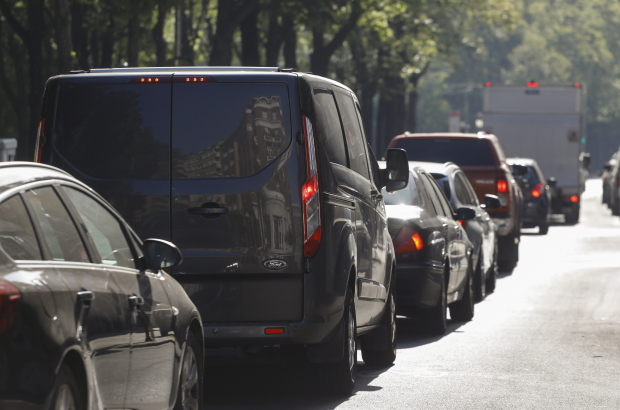- Daily & Weekly newsletters
- Buy & download The Bulletin
- Comment on our articles
Brussels region to ban diesel and petrol cars by 2035
The Brussels government has announced that it will ban diesel cars in the 19 municipalities of the Brussels region by 2030 and petrol cars by 2035.
The ban on diesel and petrol vehicles, which will also include scooters and motorcycles, was first mentioned back in 2018 when the region’s low emissions zone was first established. It was later included as part of the government agreement set at the beginning of the legislature in 2019. The final step, to agree on the dates, was completed when an agreement was reached last week.
The government announcement also revealed that vehicles running on compressed natural gas, liquefied natural gas and hybrids will also be banned from the region’s roads from 2035.
The ban is seen as an important step towards meeting the European Union's carbon neutrality goal by 2050. Road transport is responsible for 30% of total carbon dioxide emissions in the Brussels region, which have remained at a constant level since 1990, according to the Brussels environment agency.
The new Low Emission Mobility Brussels plan could help reduce greenhouse gas emissions from transport by 65% to 75% by 2030.
With the introduction of the region’s low-emission zone in 2018, Brussels has reduced emissions of nitrogen dioxide and particulate matter from transport by 11%, the region said in its statement.
However, despite improvements, a majority of Brussels residents still live in neighbourhoods where air pollution, mainly caused by road traffic, is above the World Health Organisation’s recommended health limits.
Brussels Environment said the ban would also reduce by 25% diseases related to exposure to nitrogen dioxide, such as asthma, lung cancer and other chronic respiratory disorders, and prevent around 100 deaths a year.
This reduction in deaths and illnesses should lead to substantial savings in healthcare or absenteeism at work. In total, according to the administration, €100 million to €350 million could be saved for the year 2030 alone.
As well as saving lives and improving its chances of meeting the EU’s ambitious climate goals, the ban will put Brussels in line with other cities such as Amsterdam, Paris, London and Oslo which have taken similar action.
"With this new step in the organisation of the Brussels low-emission zone, we confirm the region's desire to opt for a climate transition that is socially just," Rudi Vervoort, the minister-president of the Brussels region, told a press conference.
To offset the ban on vehicles with internal combustion engines, the Brussels government aims to install 22,000 electric car chargers in the region and would invest €1 billion in the improvement and accessibility of public transport. “Brussels is investing massively in alternatives to the private car," said Brussels mobility minister Elke Van den Brandt.
The ban still has to be discussed with other regional governments, with the aim of getting it passed into law by the end of the year, and despite the obvious benefits, it may not be an easy process if the opposition to this latest announcement is anything to go by.
"The regional executive endorses the ban on internal combustion engines but has still not presented to parliament its strategy on the choice of alternative engines that it wishes to support and develop in Brussels,” said Anne-Charlotte d'Ursel of the liberal MR party and president of the mobility committee of the regional parliament. “Four studies have yet to be finalised. What is the alternative vision? What does the government propose in terms of compressed natural gas, hydrogen, or electricity?"
David Weytsman, the vice-chairman of the mobility committee, also voiced his concerns. “In terms of the electric charging infrastructure, in May 2021 there were only 161 charging stations with 322 charging points, which is a long way away from the government’s announced plans for 2035.”
With opposition brewing within Brussels, it is likely that the Flemish and Walloon regions will also have concerns given the impact the ban will have on the cars in the north and south of the country which use the roads of the capital every day.

















